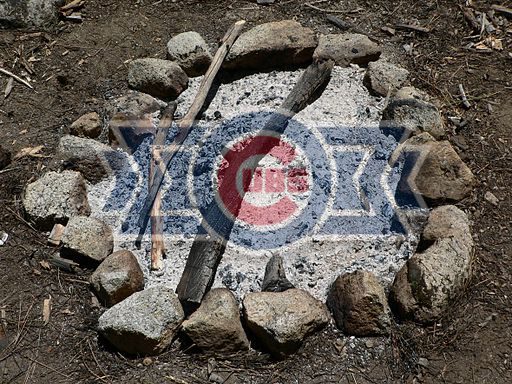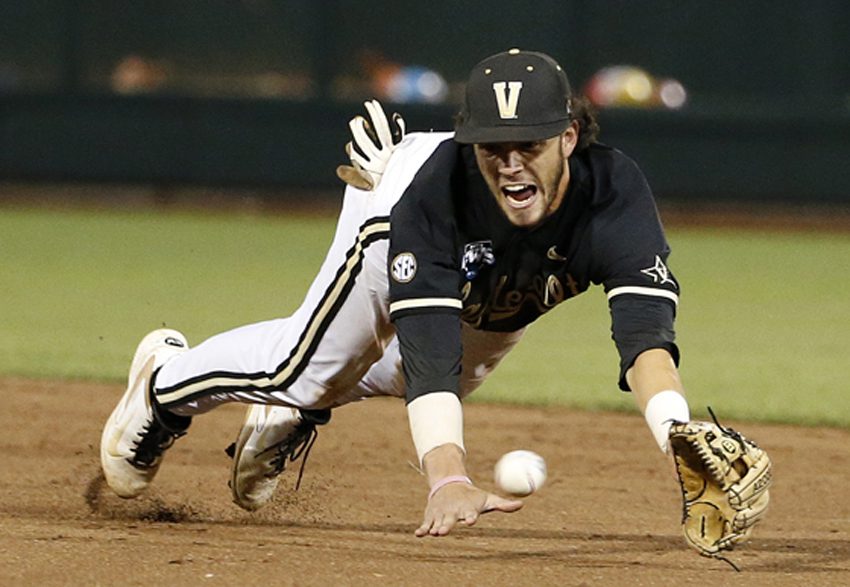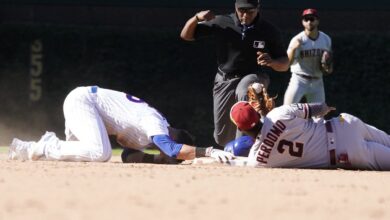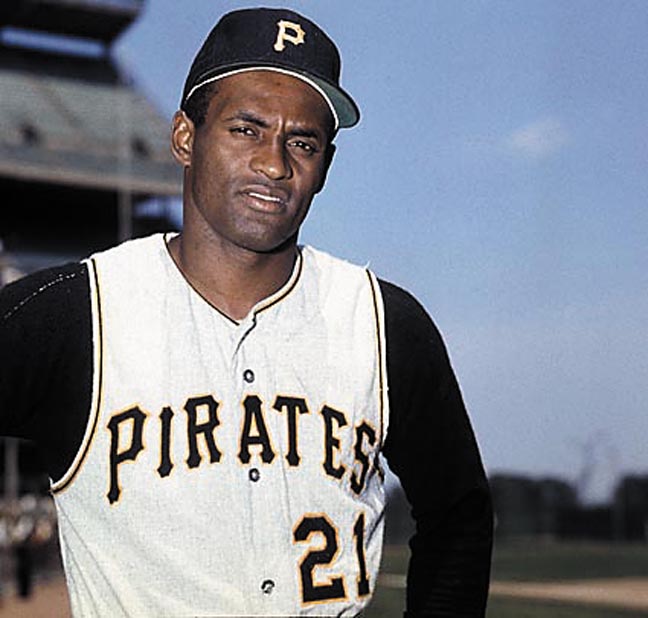


I’ve been a Cubs fan since the days I called myself “Robbie” and slept with a teddy bear every night. Being a Cubs fan has been a major part of my identity, from the days of Bill Madlock and Bruce Sutter and Jose Cardenal. I’m not old enough to remember Ernie Banks and Ron Santo as Cubs, but I remember Jack Brickhouse and the days when the Wrigley family owned the team. The Cubs are in my blood.
So, what I’m going to say in this piece is not easy for me. It feels like a determined part of me is pushing past the emotional inertia that almost 40 years as a Cubs fan has produced. But without such movement, the cycle of heartache (in the good years) and indifference (in every other year) will never end. So, today it all comes to an end.
I’m done with the Chicago Cubs.
I can’t invest any more emotional energy into them, and as such, I can’t write this column anymore. I’m very proud to have a small little niche with my name on it at this website, but the toll of this season has killed off any enjoyment of the team that I have loved for a very long time.
Specifics are probably in order here. After all, Thomas Jefferson went to great lengths to describe in the Declaration of Independence what the king had done wrong . And, in a way, I’m declaring my independence from the Chicago Cubs with this column. So, I need to set forth why it’s being done.
The idea of “jumping ship” seems to be fitting here. If the Cubs are a ship at sea, Theo Epstein and Jed Hoyer are captaining the ship, and telling all Cubs fans aboard that they know where they’re going. Stick with “The Plan” (as it’s often described on Twitter), and one day we’ll be in playoff contention every single year. And for most Cubs fans, assurances from the leaders are quite enough. But I’ve seen enough, and this is where it’s time to jump off.
What do I mean by “enough”? Let’s start with Dale Sveum. He was the first move the present front office made, and he produced the worst two-season stretch in the Cubs’ long history. They could have hired Ryne Sandberg, who earned his shot by working his way up through the minor leagues, but they went a different route, instead. And I supported them at the time. I gave them the benefit of the doubt.
But things went badly in the first season. Sentimental fan favorite Kerry Wood was signed to a one-year contract, but he failed so spectacularly that he only pitched 8.2 innings and retired in May. Perennial malcontent Carlos Zambrano was traded away — as he had to be — but all that was returned for the Cubs’ one-time ace was Chris Volstad, who didn’t record a win until late August and ended the year with a 6.31 ERA. The Anthony Rizzo-for-Andrew Cashner trade with the Padres is considered a winner by Cubs fans, but Cashner is just entering his prime and looks like an arm the Cubs could use right now. The trade deadline moves — which have become a hallmark of this front office — sent the team into a deep tailspin, and the result was the first 100-loss season in my lifetime, and likely in yours, too.
Year Two saw a few more wins, but a notable regression in the play of Starlin Castro and Rizzo, the Cubs’ building blocks for the future. The reclamation of closer Kevin Gregg looked like a success, but it was made necessary by a stubborn reliance on Carlos Marmol, and an ineffective signing of Kyuji Fujikawa. After the Anibal Sanchez signing fell through, the Cubs signed their first big-money free agent in Edwin Jackson. Nobody will call Jackson’s first season on the North Side a success, and there are three more seasons coming along right behind it. The only big-dollar contract this front office has awarded has been a bust so far.
Sveum was fired, and there was talk of Joe Girardi coming to Chicago to resurrect the franchise. But really, other than his Peoria, Northwestern and Cubs roots, why would he want to leave the most successful franchise in the game for the game’s biggest laughingstock? There isn’t enough money out there to make a sensible guy like Girardi jump. And when it came time to pony up the dough to sign Masahiro Tanaka, the same thinking came into play. When given a choice between the Yankees or the Cubs, there’s really no decision to be made.
But look at Nate Schierholtz, a Cubs loyalist might say. Theo and Jed signed him, and he hit 21 homers in 2013. True, but he’s been below .200 for most of this season, and baseball is all about “what have you done for me lately?” In Schierholtz’ case, it’s not too much.
The same lack of offense has bedeviled other Cubs players this year. Castro and Rizzo are doing okay, and Emilio Bonifacio — signed in the offseason — also has been a nice surprise. But after that, and an okay season from catcher Welington Castillo, there’s nothing there. Three everyday players — Schierholtz, Darwin Barney and Mike Olt — have been below .200 for most of the season, with Barney hitting .115 until a few days ago. And they aren’t the biggest insults of all, either.
Cub’s backup catcher John Baker is truly a puzzle. He might be a tremendous catcher for all I know, but his .063 batting average is something else, altogether. It’s so bad his batting average is the same as Jason Hammel’s, who hadn’t recorded a hit since 2011 before this season, and is a lifetime .115 hitter. Each of the other four Cubs starters hits for a higher average than Baker does. And yet he somehow remains on the roster and even starts a game on occasion.
What really gets me, though, is the complete lack of urgency on the part of those who are hired to make this team better. Nobody has been DFA’d or sent back to the minors, and nobody’s been brought up from the minor leagues, either. Every day, manager Rick Renteria pencils in a number of sub-Mendoza line hitters, as if they are just waiting for the right moment to snap out of whatever offensive funk they are in. It hasn’t happened yet, though, and each passing day yields the same old, tired result.
But think about the prospects, the captains of the Cubs’ sea vessel and the Cubs-related media continue to call out. Kris Bryant is tearing it up at double-A, we’re told, and Javier Baez is a legend in the making, as well. If that’s the case, bring up Bryant and send Olt down to the minors. Olt’s eight homers are impressive, but his .181 average is enough to make Dave Kingman (and his .236 lifetime average) look like Tony Gwynn at the plate.
Calling any of these prospects to the majors now would be a signal that the future is on the way. If the Cubs want to bank on the future, they should be willing to show us what that looks like. But no, doing so now would shorten team control over these players in the long run. To save a year of control down the road, this year’s team is being left to wither like the crops waiting for the California rains to come. And I find that unacceptable.
The diehard variety of Cubs fan will consider this talk as evidence that I’m not a “real fan.” Let them say whatever they will. I can go toe-to-toe with any Cubs fan out there when it comes to devotion through good times and bad. But it’s all changed this year, and I don’t think it can ever go back to what it was, even at the beginning of this season.
Friday afternoon, as I was mired in frustration over a loss to the Ryan Braun-less Milwaukee Brewers, I heard the hosts on an afternoon sports talk radio discussing the topic on-air, and so I called in to add my two cents to the conversation.
And I used an analogy of a campfire. I hate camping, and I told the hosts so on the air, but the important thing with a campfire is to keep adding wood when the embers are low. Once the fire goes out, I told them, rekindling it becomes much more difficult. And the fire of my interest in the Cubs has now gone out, not only for 2014 but for as far as my well-worn eyes can see.
The hosts picked up on the analogy and extended it, saying that the Cubs are hyping the rocks around the fire — a/k/a Wrigley Field — to draw attention away from the fact that there’s nothing going on in the firepit itself. They then went on, as many Cubs fans do, to talking about how great it will be when the Cubs win. But for me, and perhaps a few others, it’s not a matter of when this happens. It’s a quetion of if it happens, and I’ve seen enough to suggest that it will not happen.
Many of the statistic-minded fans, of the Cubs and other teams, believe very strongly that wins and losses are not a useful measure of evaluating a pitcher’s performance. One look at 0-4 Jeff Samardzija and his ERA of less than two would appear to support this contention. But I disagree, for reasons Masahiro Tanaka’s 6-0 record makes clear.
Each time Tanaka adds to that wins total, his legend continues to grow. His ERA is probably much higher than Samardzija’s right now, but that matters little. When — or maybe if is a better word — a team hangs a loss on Tanaka, it will be a big deal in the media. They won’t pay attention to his QS numbers, or his groundball-to-flyball ratio, or anything like that. It’s a question of will he win the game or will he lose it? And so far, no team has bested him to where he’s taken a loss.
Why bring this up? It’s simple, really. In two and a half seasons of the Theo Epstein/Jed Hoyer era, there hasn’t been a single Cubs pitcher with 10 or more wins for a season. And there won’t be any for this season, either. So why would any elite pitcher — which the Cubs need to have if they any postseason aspirations — ever agree to pitch for the Chicago Cubs? If you had 10+ win stuff and the choice of being Jeff Samardzija or being Masahiro Tanaka, which would you rather be?
The Cubs don’t want to win this year. Anyone who contends otherwise sees something that I can’t see. But in writing off this year, and an as-yet-undetermined number of seasons still to come, the Cubs’ front office has allowed the campfire to go out, at least as far as I’m concerned.
Perhaps the current front office eventually will guide the S.S. Ricketts to shore, and happy times will reign throughout the North Side of Chicago. The front office asked the fans to give it five years to accomplish what it wants, and this is still early in year three. I’ll gladly wear the shirt if that day should ever arise, but as of this moment, I’m asserting that it won’t happen. I’m no longer willing to accept any statements to the contrary, either.
Best of luck to you, Cubs fans. You’ll surely need it.
In closing, I’m sure there will be other things to say about baseball in general in the weeks and months to come. And anyone who wants to pick up the torch and write about all the good things happening with the Cubs, please be my guest. But as for me and this column, “That’s all, folks!” Thanks so much for reading it.





